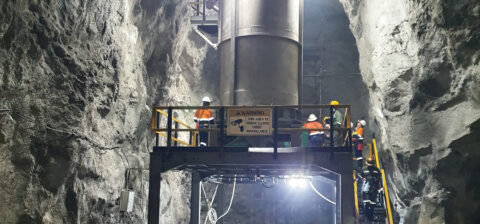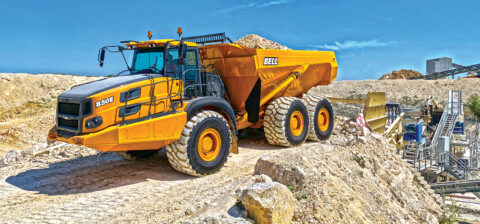Sunday Times Green
Waste: South Africa’s New Gold
How are successful recycling schemes turning waste into a precious commodity?
South Africans produce a lot of waste. Those of us who live in cities, says the World Bank in a 2012 report, generate around 2kg of solid waste matter a day (compared with just 530g in neighbouring Zimbabwe and 2.58kg for US urbanites).
“But we’re still among the best in the world in terms of turning our own waste back into raw materials,” says Rudi Johannes, chairman of the South African Plastics Recycling Organisation (Sapro).
Sapro data shows that 18.8 million two-litre bottles’ worth of plastics are recycled every day. Petco, which represents South Africa’s PET (polyethylene terephthalate) plastic bottle industry, recorded over two billion PET bottles recycled in 2017, an increase of over 800% since 2005. This puts our current PET recycling rate at 55% of all bottles purchased, surpassing the US (30%), and closing in on the EU (59%).
Waste is valuable stuff, too. In its 2017 Intelligence Report, non-profit group GreenCape estimated that there are R17-billion worth of resources recoverable in 13 major waste streams.
“There’s growing public pressure to recycle and consumers are becoming actively involved in upstream collection efforts,” says Johannes. “When it comes to plastics, South Africans are recycling more than ever before.”
The new supply chain
That’s not to say that the growth of the recycling industry doesn’t come with some issues attached. For a start, the costs of recovery are relatively high compared with more mature economies: the vast majority of PET bottles recycled are collected by the 50 000 informal waste pickers rather than via central collection points.
In addition, the amount of plastic recycled has grown so fast that the end market for recycled products cannot keep up – we’re in danger of producing more recycled plastic than local industry can use.
“The survival of the industry depends on creating more demand for recycled materials,” Johannes says.
As a result, effort is being put into collaborating with retailers to stimulate demand. Woolworths’ RE: clothing range, for example, produces denim jeans using materials recovered from about
12 500ml recycled plastic bottles.
It’s not just plastics, either. Paper recovered via recycling has increased by 2% year on year since 2012, and the annual rate now stands at 68.4% of paper sold, well above the global average of 58%.
Metal recycling is also on an upward trend. Legislation requires 30% of all metal to be resold to the South African market, making it, arguably, our most worthwhile recycling industry. Initiatives like Collect-a-Can have played a major role in the recovery of used metal cans.
“Aluminium and steel packaging are the world’s most recycled packaging and are literally worth their weight in gold,” says Delanie Bezuidenhout, CEO of metal packaging association MetPac-SA.
In sharp contrast, South Africa’s e-waste industry is lagging behind. Only around 11% of old computer equipment is recycled, according to a joint report by the Council for Scientific and Industrial Research and the Department of Science and Technology. Recycling components is tricky but valuable – a UN study published at the end of last year estimated that R824-billion is lost annually across the world in materials used to manufacturer computer chips and circuit boards that aren’t recycled.
Improving our standards will take creative thinking. For e-waste, for example, many discarded components are simply stored in offices rather than recycled, out of fear that sensitive data may be recovered from them. Specialised outfits, such as Joburg’s Xperien, are emerging, however, who can combine safe data destruction – such as shredding of hard drives – with material recovery and “reverse manufacture”. Earlier this year, Xperien launched Africa’s first mobile e-waste disposal service.
Because although we’re good, there’s always ways to be better.
Best in breed – Gold winners at Sapro’s Best Recycled Product Competition in 2017:
1. Addis watering can: 95% post-consumer recyclate
2. Spacebase Bed Base: 100% post-consumer recyclate
3. Checkers carrier bags: 75% post-consumer recyclate
4. Tuffy’s refuse bags: 100% post-consumer recyclate






 Sign-up and receive the Business Media MAGS newsletter OR SA Mining newsletter straight to your inbox.
Sign-up and receive the Business Media MAGS newsletter OR SA Mining newsletter straight to your inbox.